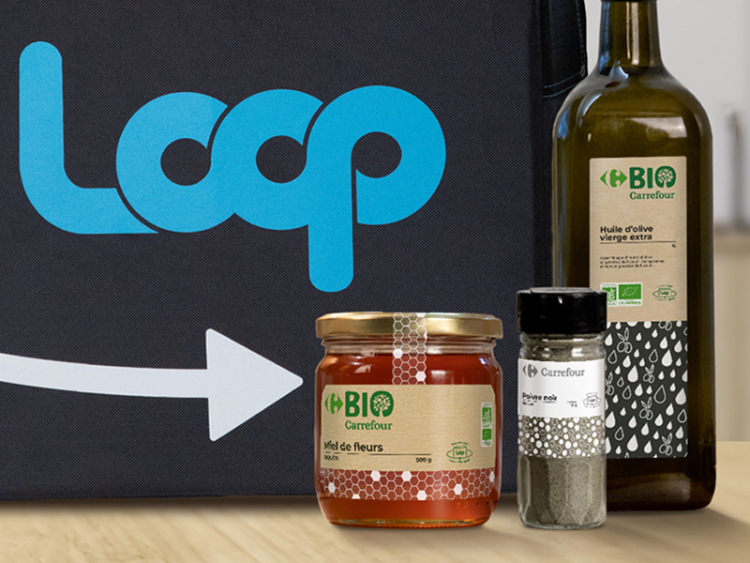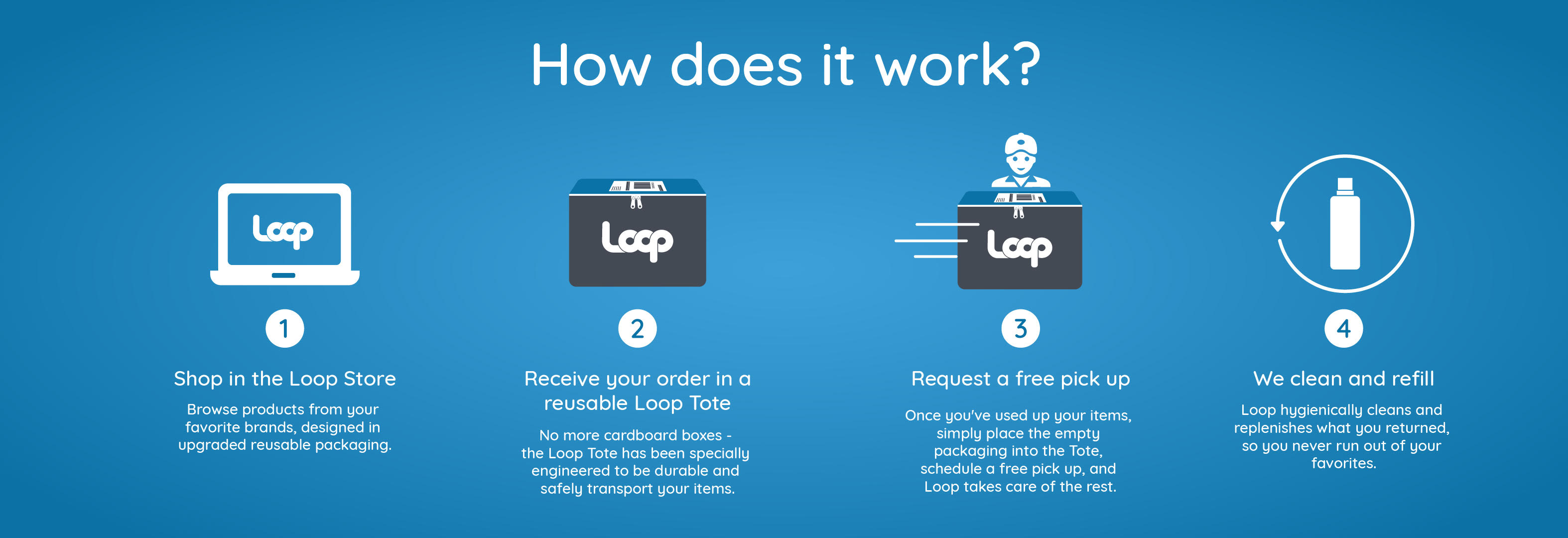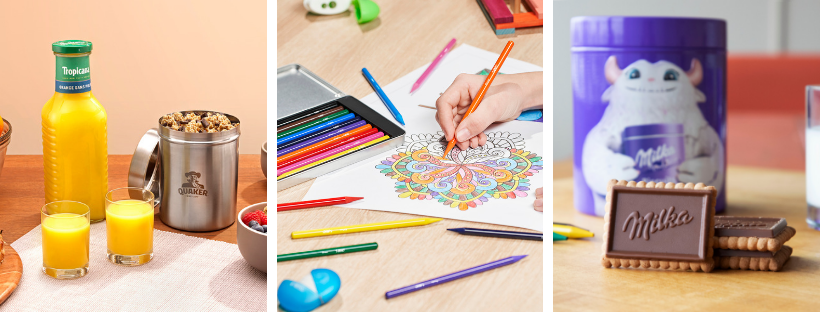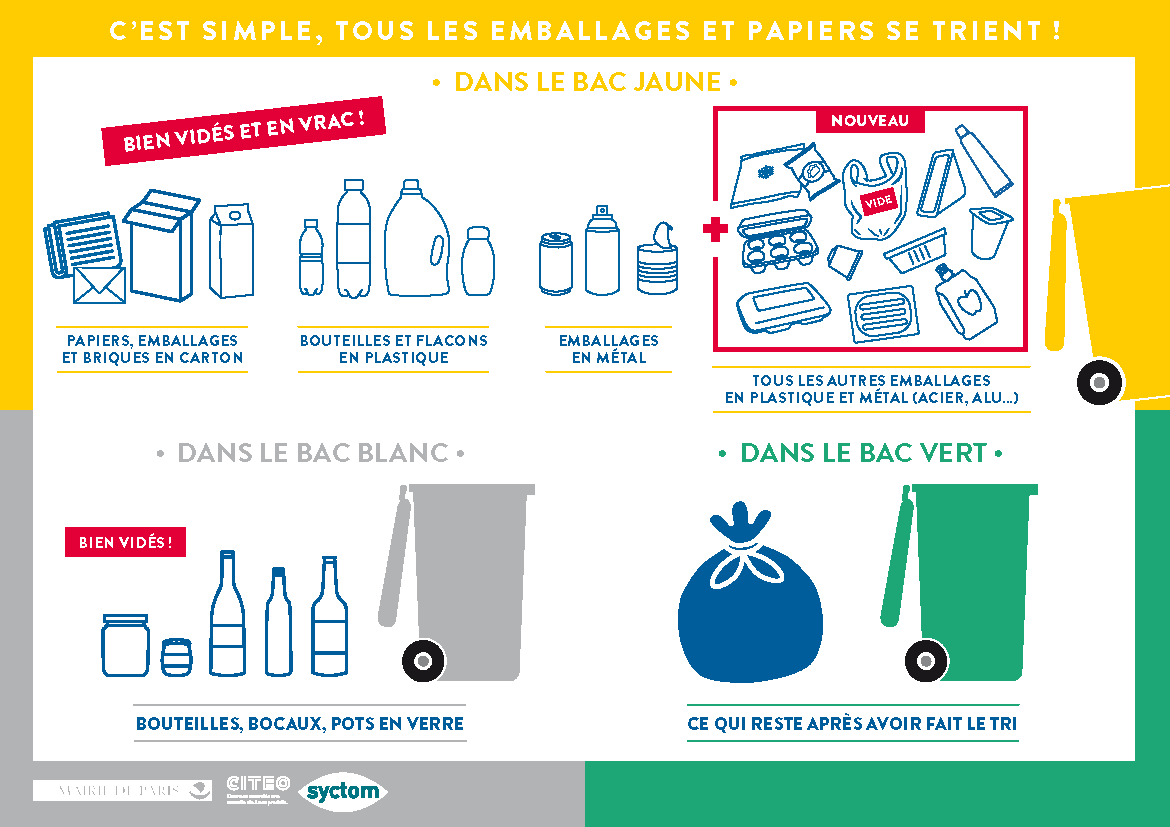Paris: The City of Light, Love and Sustainable Living

It’s a classic scene straight from the 1950s: Each morning, the friendly neighborhood milkman comes around the house and sets out glass bottles of the day’s milk. Each evening, those glass bottles, now empty, are set out again, waiting to be picked up by Mr. Milkman and replaced the next day. Nothing gets thrown out, just reused. It’s simple and easy. It’s a loop.
A new startup coming to Paris hopes to bring back this minimal method of consumption. Enter Loop, the millennial’s Mr. Milkman.
Announced with much hooplah at the 2019 World Economic Forum in Davos, Switzerland, Loop is a “zero-waste” e-commerce subscription service that will launch in the New York City and Paris metropolitan areas this spring. Loop will sell products from major brands in reusable packaging, free of disposable elements and deliver them to your home. Once you’ve finished using the product, Loop will pick it up, clean and sterilize it, and then refill it for the next user.
Before the invent and mass production of plastics, living without creating waste was relatively easy. Today, the convenience of stopping by any grocery store to pick up an individual item packaged in single-use plastic defines the way we shop. But though a piece of packaging may only play a role in our lives for a short time, it has a long life ahead of it, usually in a landfill. Loop will be an interesting experiment of adding the convenience of home delivery to encouraging mindful consumption, especially in the Paris region.
Loop is designed to make living waste-free a little bit easier with its home delivery and pickup service. Image credit: TerraCycle/Loop.
Why Paris?
So what made Loop’s New Jersey-based parent company TerraCycle (which manufactures the reusable products) decide to introduce Loop not just to neighboring New York City, but halfway around the world to the French capital?
It was a partly logical business decision, as France was already one of the largest of TerraCycle’s European markets, according to Clémence Bernard-Colombat, public relations manager at Loop Europe. France has also taken the lead on the world’s major push for environmental responsibility, notably naming the major 2015 climate change agreement after its own capital.
Yet ironically, the country itself has a notoriously poor environmental reputation. Only 25 percent of plastic packaging is recycled. Parisians love their plastic water bottles, but only recycle 56 percent of them. The smoking culture has serious effects: Breathing Parisian air for four days is the equivalent of smoking two cigarettes, or 183 per year, and the butts tossed on the ground have essentially become their own layer of French soil.
Mayor of Paris Anne Hidalgo has made waste reduction a top priority; in August 2018, Paris joined 22 other cities worldwide in its goal to have reduced waste by 50 percent in 2030.
“We must urgently transform each aspect of our modern lives, especially when it comes to what we throw away,” Hidalgo said at the time.
Loop will therefore be joining a number of actors encouraging the waste-free movement, which many have found to be quite easy (and fun!) to join. Major markets like Monoprix, Carrefour and Franprix offer bulk shopping for dry products. Altermundi shops have a wide array of zero-waste cosmetic, home and food storage products for sale. La Maison du Zéro-Déchet offers classes on how to live without waste plus a market for all the reusable materials you might need to do so.
Some of Loop's offerings in France will include Tropicana orange juice, Quaker Cruesli cereal, BIC pens and colored pencils and Milka cookies. Image credits: TerraCycle/Loop.
“It’s nice to have the option to buy something just once and then reuse it,” says Avani Gallo, president of AUP Green. “That way you know you’re not taking more materials out of the Earth ... and you just have to invest one time.”
And Loop’s concept is one with which AUP students might already be familiar: Just a few minutes’ walk from campus is a unique Franprix Noé on rue Saint-Dominique - one of the few places in Paris to stock up on wine, spirits, oils and various toiletries and household cleaners in refillable bottles. Shoppers can either purchase a glass bottle in-store for a small deposit fee or bring their own container. Loop will offer the same model with the added convenience of home delivery and pickup. It’s an eco-friendly Amazon Prime.
Will it work?
Could you really live “waste-free” with a service like Loop? Of course not. Cleaning and transportation will limit Loop from ever operating at a truly zero-waste level, says Bernard-Colombat. But Loop also plans to open “‘packaging-free’” aisles and recycling spots for the used containers in Carrefour stores. In addition to offering the added convenience of immediate purchase, the in-store model can help minimize concerns about the carbon footprint of the home delivery system.
Like with other reusable packages, long-term use of Loop products will also reduce costs financially and environmentally. TerraCycle found that five to 10 uses of reusable packaging from Loop created approximately 50 percent in cost savings compared to purchasing the same product with single-use packaging from a traditional e-commerce retailer the same amount of times.
But will Loop gain a large enough following to simply sustain itself? Many see initial investment costs in reusable products as a barrier to joining the zero-waste movement despite long-term savings, in addition to the idea of having to take time to take care of their packaging.
“I think it’s [the idea of] convenience more than anything else,” says Gallo, in reference to what limits people from reducing their use of disposable packaging. She hopes, “with more education and more options, people will be able to see in reality it is pretty easy to become more zero-waste.”
The city's new bac jaune recycling program is perhaps the easiest way to start living waste free. Image credit: Mairie de Paris.
While we can only sign up for Loop’s waitlist now, Parisians can still take action today. It can be quite clear how Parisian culture does not always consider the environment. Thirsty? Just buy a plastic water bottle. Finished a cigarette? Just throw it on the ground. No recycling bin your building? Ah bon... c’est la vie. But with new city programs, like the updated bac jaune recycling system, living without waste in Paris is becoming simpler. Almost all packaging can be put in the yellow recycling bins making the single-mistake rule, which penalized Parisians for putting even one non-recyclable item in the yellow bin, a thing of the past.
Loop’s idea of using and returning packaging is by no means revolutionary, but it sparks the question of whether the e-commerce element will encourage higher engagement with zero-waste consumerism. And though the idea may be recycled from Mr. Milkman, sustainability is meant to be cyclical. Though joining Loop would be a personal choice, it’s our collective duty to understand le tri. Time will tell if it’s all worth the loop-lah.










